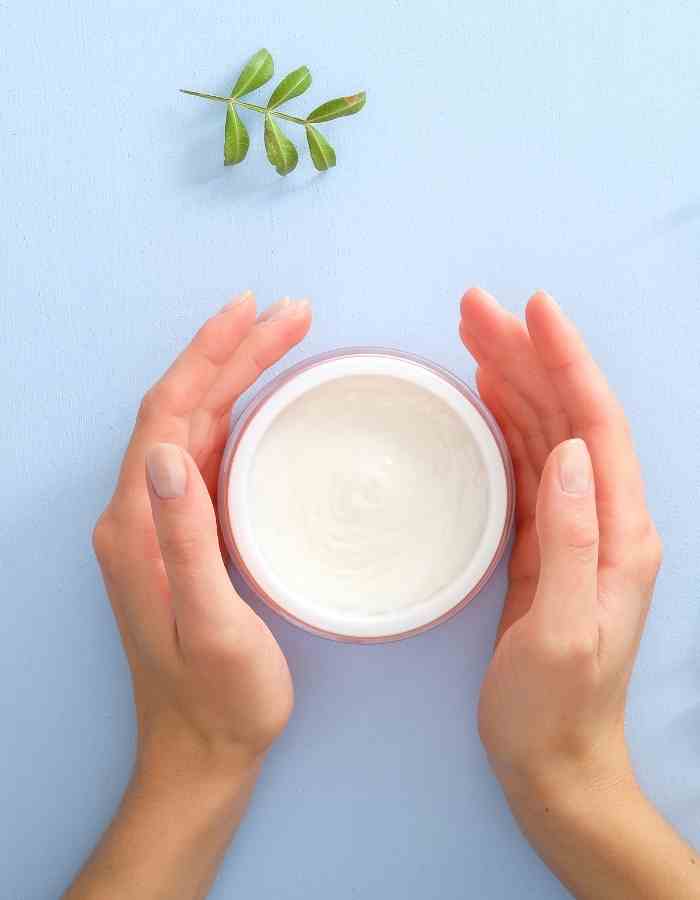Hyaluronic Acid Moisturizing Your Skin
Hydrated skin is healthy, supple, and young-looking. To maintain it hydrated, women have included moisturizers in their daily beauty routine; these products are becoming the stars of the cosmetic industry in the last decades.
When hyaluronic acid is added to moisturizers, consumers everywhere receive an effective solution for multiple skin problems.
Here is what you need to know about hyaluronic acid moisturizers:

How Do Hyaluronic Acid Moisturizers Work?
Human skin consists of three layers: the epidermis (outer layer), dermis (middle layer), and hypodermis (lower or fatty layer).
Blood vessels deliver moisture to the skin, but only down to the middle layer (dermis). The moisture is then circulated until it evaporates in the atmosphere. Moisturizers prevent water loss at skin level by either locking moisture in the epidermis or providing the same amount of water lost from the skin’s layers.
Based on how they act on the skin, there are three types of moisturizers:
- Occlusive Moisturizers
Occlusive moisturizers are made of long strands of carbon atoms; these products create a barrier on the skin’s surface that cannot be crossed by water molecules, trapping and keeping the already existing moisture in the layers of the skin. Occlusive moisturizers usually contain waxes, oils, and silicones that effectively preserve the skin’s hydration levels.
- Emollient Moisturizers
Unlike occlusives, these moisturizers penetrate the skin and fill the fine spaces (such as dry cells) in the skin, making it smoother. As for resemblances, emollient and occlusive moisturizers share the long strands of carbon structure and some of the chemical compounds they contain (such as castor oil).
- Humectant Moisturizers
Humectant moisturizers can retain and preserve the water that they draw from the environment. This ability is due to humectants’ composition, which penetrates the skin layers and attracts these layers’ moisture. This moisture is then used to produce ceramides, which give skin its structure and prevent water loss.

Hyaluronic Acid Skin Care Benefits
Hyaluronic acid (HA) is a large molecule that our body produces naturally through fibroblasts – specialized skin cells found in the dermis. Half of the quantity of hyaluronic acid resides in the skin, but it can also be found in tendons, bones, ligaments, or joints.
This compound binds to water molecules and can hold up to 1,000 times its weight in water. This enables hyaluronic acid to retain moisture, acting as a humectant being the property for which it is used in many beauty products for skin care. As we age, the amount of HA quantity produced by the body decreases.
Taking hyaluronic acid supplements helps refill the HA “reserve” the body needs to maintain the youthful look of the skin and the health of joints and other connective tissues.
Main hyaluronic acid benefits for skin:
- gives skin volume and plumpness;
- moisturizes skin layers;
- provides a smooth and radiant look of skin;
- soothes sensitive skin;
- refills the skin’ cells water reserve;
- decreases wrinkles;
- alleviate dry or inflamed skin appearance.
How to Choose a Hyaluronic Acid Face Cream
Each hyaluronic acid molecule has a particular molecular weight that impacts how deep this molecule can penetrate the skin’s layers. HA with high molecular weight cannot go too deep into the skin, and instead, it creates a film on the skin’s surface.
After conducting several tests, researchers have concluded that HA with low molecular weight (LMW) provides better skin results than high molecular weight HA. A published study shows that using low molecular weight hyaluronic acid provided significant elasticity and hydration to the skin and a visible reduction of wrinkles depth. Effective hyaluronic acid creams are, therefore, the ones with low molecular weight HA.
How to Recognize the Best Hyaluronic Acid Moisturizer
Hyaluronic acid has the best effects when it is included in products that aim to moisturize the skin. That is why choosing the proper moisturizer is an essential step in giving your skin the hydration it needs and, subsequently, its youthful look.
The best hyaluronic acid moisturizer is the one which:
- preserves the cell moisture keeping the skin plump;
- prevents the appearance of fine wrinkles;
- is fast absorbed by the skin, avoiding a greasy look on your face;
- contains occlusive compounds that prevent water loss (such as avocado oil, shea butter, or beeswax);
boosts skin repair by providing non-hydrated cells the water they need to function properly.

Hyaluronic Acid Body Lotion
Body lotions containing hyaluronic acid reduce crepey skin’s appearance – thin, wrinkled skin that looks like crepe paper. HA reinforces the intercellular structures and produces a fluid that firmly wraps elastin and collagen fibers, with important roles in the anti-aging process.
The skin – specifically the epidermis – is protected against aging also due to keratinocytes – whose growth is influenced by hyaluronic acid contained by body lotions. These skincare products can also alleviate sunburns, thanks to their reparative characteristics.
Is Hyaluronic Acid and Retinol an Efficient Mix for your Skin?
In recent years, hyaluronic acid and retinol mix has become an anti-aging staple for the skincare industry.
Retinol, a derivative of vitamin A, is also effective as a preventive anti-aging solution, so you can use it before the wrinkles begin to appear. Retinol stimulates collagen production, a process that requires hydration for both new and regenerated cells, while hyaluronic acid provides precisely that hydration. Retinol also increases the production of glycosaminoglycans, a compound that helps maintain the skin smooth and firm.
When combined, hyaluronic acid and retinol have amazing effects on the skin: the fine wrinkles fade away, and the skin texture is significantly improved. These two substances can boost your skin rejuvenation treatments! Before trying it, make sure to do a patch test as retinol can sometimes irritate the skin.
Which Hyaluronic Acid Moisturizer is Good for You?
In general, it’s recommended to choose a fragrance-free hyaluronic acid moisturizer. It does not contain heavy acidic compounds, or steroid-based ingredients as these can irritate, dry, or thick your skin.
The moisturizer should be chosen based on your skin type: an oil-free moisturizer works great on normal skin, while an intense-hydration moisturizer helps dry skin retain its moisture.
For young-looking skin, you can try a day cream enriched with hyaluronic acid moisturizer – Revitalift Laser Renew from L‘Oreal Paris, which improves your skin’s texture, smoothness, and moisture.
If you are looking for double-impact skin rejuvenation, Neutrogena has the answer: hyaluronic acid and retinol mix in a single anti-wrinkle cream for both day and night – Neutrogena Rapid Wrinkle Repair. The retinol will blast your fine facial lines and reduce the appearance of deep wrinkles. The hyaluronic acid will moisturize, smooth, and plump your skin, making it look young again!
For sensitive skin, Cetaphil brings you a hyaluronic acid moisturizer with a delicate action and intense hydration. Your skin will replenish its water reserve and regain its smoothness with this fragrance-free facial moisturizer.




